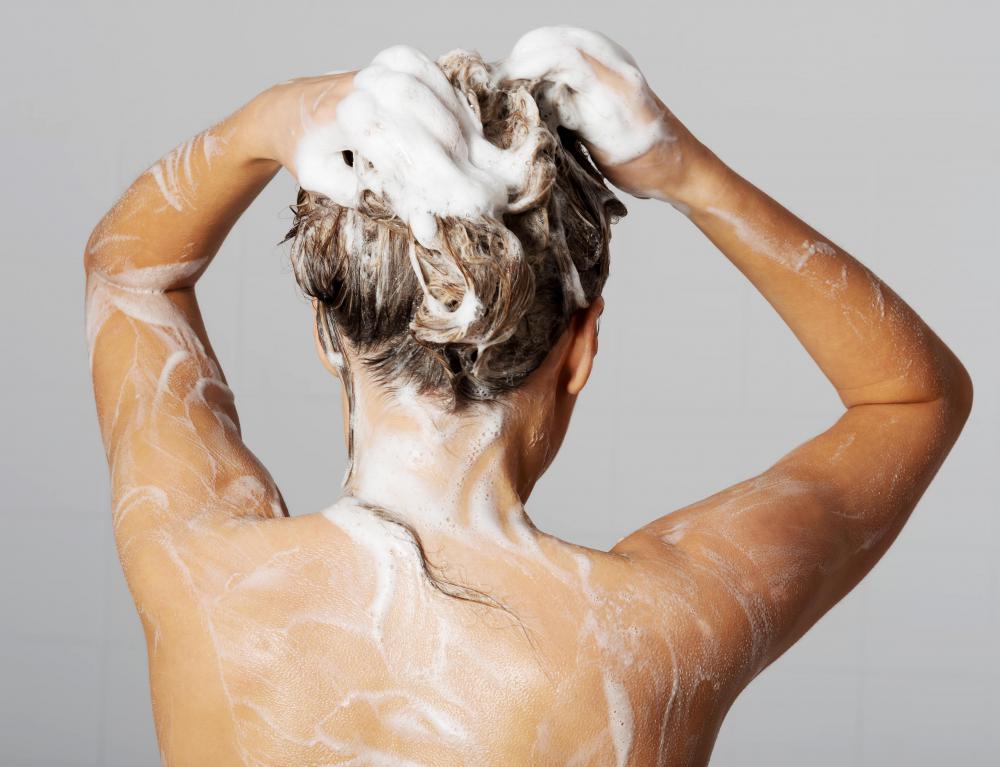At WiseGEEK, we're committed to delivering accurate, trustworthy information. Our expert-authored content is rigorously fact-checked and sourced from credible authorities. Discover how we uphold the highest standards in providing you with reliable knowledge.
What Are the Different Personal Hygiene Activities?
Personal hygiene activities help young people learn the importance of cleaning their bodies. Activities can teach children about germs and contamination as well as the proper way to brush their teeth, wash their hair, and shower. A parent or teacher can use a number of personal hygiene activities to help children learn to keep clean. The use of music or visual objects, for instance, can help people understand the importance of hygiene.
Some personal hygiene activities involve singing to give a person a general idea of how long to wash. For example, a child can sing "Happy Birthday" while washing his hands so that he learns the proper amount of time it takes to remove dirt and germs. Playing a song while a child brushes his teeth is another way to show him the proper amount of time needed to get his teeth clean.

Other personal hygiene activities demonstrate the way germs or dirt spread from person to person. A teacher can use a substance that transfers from one person to another easily, such as wet, washable paint or small pieces of glitter, to demonstrate the spread of germs. She can touch a student's hand, covering his hand in the paint. The student can then touch another student's hand, and so on, until everyone's hand is covered in paint or glitter. To finish the demonstration, the teacher should wash her hands to show how to remove germs and dirt.

Personal hygiene activities at home involve a parent brushing his child's teeth to teach the proper technique. The parent can then instruct the child to brush his teeth. Once they have brushed each other's teeth, they can inspect them. The parent can check his teeth out in the mirror and point out any crumbs or plaque the child missed.
A parent may decide to make a star chart or other activity that awards a child for practicing personal hygiene. Every time a child brushes his teeth, washes his hands, or has his hair shampooed, he gets a star on the chart. The parent and child can decide on a reward once the chart is full. It can be a reward related to hygiene, such as a fun new bottle of shampoo or a bath toy.
Another way to teach people about hygiene is to quiz them. A parent or teacher can ask a child how long he needs to brush his teeth or wash his hands. She can make up a true or false game, asking the child fun facts about germs and cleaning methods.
AS FEATURED ON:
AS FEATURED ON:





















Discussion Comments
@turkay1-- Do you mean washing hands after using the toilet?
We did a great exercise for that at my school (I'm a teacher). We bought some removable and non-toxic paint. To show the kids how germs from our hands spread, we had one child put paint on his hand and had him or her walk around the classroom and touch different things.
As the paint stuck to different objects, the kids understood that the germs spread as we touch things. And then we had another student go and touch one of those objects with the paint and then she got the "germs" too.
This was a great activity to help them understand how germs spread. It's a good motivation to get kids to wash their hands regularly, especially after using the bathroom and before eating. You could do this activity at home with your son.
@turquoise-- You might be right, but sometimes simply asking kids to wash their hands or brush their teeth isn't enough. You have to give them a motive to do it and they also need to understand why.
Of course, the motive shouldn't be to evade punishment. I went to a really strict private school when I was young. We used to lose our recess time if our hands weren't washed and our nails cut and clean. That probably wasn't necessary.
But doing a star chart and giving a prize to those who have stars is a great idea. In the beginning, the kids will pay attention to hygiene for the prize but then it will develop into habits. We might try this with our son.
Right now, my wife and I have put a little hourglass made for brushing teeth in the bathroom. We have our son turn it over whenever he's starting to brush his teeth and he knows he has too keep brushing until all the sand has gone to the bottom. We use it too, it's actually fun.
Does anyone else have any other ideas for activities or motives? Especially for toilet hygiene? We can't think of any ideas for that one.
It is very important to teach children about hygiene and how to clean themselves from a young age. But I don't think these activities should be overdone. I know several people whose mothers were very particular about hygiene and used to worry about them not being clean all the time. Now they're very hygienic people, but maybe a little too much.
One of my friends is actually paranoid about germs and is suffering from damaged dry skin because she washes her hands and uses sanitizes constantly. She is getting psychological help now.
That's why I don't think we need to pressure our kids too much about hygiene. We should teach them gently and in a fun and friendly way. Not in a way that we are scolding them or frightening them more than necessary. For example, I wouldn't want to do the glitter exercise with my kids because it could lead them to think about invisible germs obsessively and be frightened of being dirty.
Post your comments